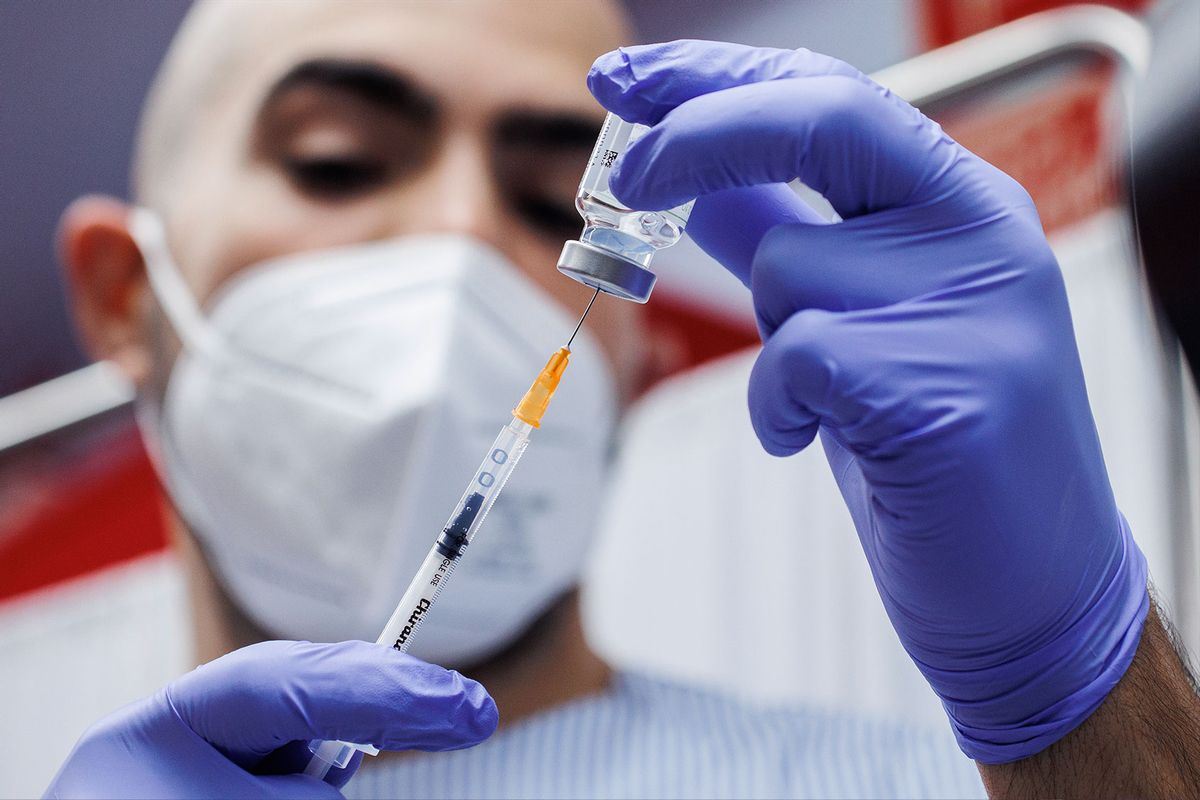Placing profits above people when it comes to COVID vaccination has led to an estimated 1.3 million deaths globally and nearly 300 million additional infections. According to new research in the journal Nature Medicine, rich countries that hoarded vaccines — in many cases, even trashing them — have not only contributed to otherwise preventable deaths but also helped prolong the pandemic and spur the emergence of mutated variants that continue to plague the public.
Using a mathematical model crunching data from 152 different countries, epidemiologists from the University of Warwick in Coventry, UK, charted differences in COVID vaccine distribution from the start of the pandemic to the end of 2021. They found that vaccine access varied drastically. Some countries gained over 90% vaccination in adults (meaning two shots or more), while some had coverage as low as 0.9%, with a country's level of wealth playing a key role in this discrepancy.
"We found that greater vaccine sharing would have lowered the total global burden of disease," the study's lead author Sam Moore and colleagues wrote. "Our results reinforce the health message, pertinent to future pandemics, that vaccine distribution proportional to wealth, rather than to need, may be detrimental to all."
This uneven distribution has severe consequences not only locally but also internationally. There have been an estimated nearly 630 million COVID infections worldwide and more than 6.5 million deaths, according to estimates by the World Health Organization (WHO). However, this figure may be low: Some estimates based on excess deaths anticipate the number could actually be between 16.5 million and 28.1 million deaths.
The WHO also estimates 12.8 billion vaccine doses have been administered, but that hasn't been enough to considerably stop SARS-2 from surging. Each illness gives the virus ample opportunity to reproduce, allowing for mutations that give it new advantages against vaccines and acquired immunity. And the virus has been mutating rapidly: A "variant soup" threatens to bear down on North America and Europe this winter; as the virus mutates, its symptoms can change as well, making tracking slightly more difficult.
Rich countries have incentives to stop the virus from spreading and mutating. That's exactly how to keep this pandemic from continuing perpetually, causing supply chain disruptions and overrunning hospitals. And while vaccines have been a fantastic tool for reducing COVID infections and hospital visits, they're far from the only tool available. Medications like Paxlovid, improving indoor ventilation and masking are also important strategies.
Want more health and science stories in your inbox? Subscribe to Salon's weekly newsletter The Vulgar Scientist.
By most accounts, the COVID vaccines are something of a miracle. In less than a year, as the deadly SARS-CoV-2 virus ravaged the planet, the global scientific community came together and developed effective inoculation on an unprecedented scale. The mRNA vaccines aren't perfect: While relatively rare, some people can still get sick or spread the virus after being vaccinated. The shots, however, are excellent at preventing "severe disease," which generally means hospitalization or death.
Vaccination also fades with time, which is normal with certain types of vaccines. Our immune systems aren't perfect, either. That's why booster shots have been so important: to regularly retrain our inner defenses against COVID and its variants.
While, yes, it's possible to get a breakthrough infection, a patient is far, far less likely to need a ventilator or die. Developing long-term COVID symptoms such as "brain fog," trouble breathing or heart palpitations — a lingering condition known as "long COVID" — is also less likely with vaccines.
Numerous wealthy countries have allowed their vaccines to expire, forcing them to be thrown in the dumpster . . . The US is still a leader in this regard, with more than 82 million vaccines discarded between December 2020 and May 2022.
But many countries have been unable to afford vaccines due to their costs, with intellectual property law and patents being a major obstacle to access. Meanwhile, numerous wealthy countries have allowed their vaccines to expire, forcing them to be thrown in the dumpster. Last month, Switzerland threw away 9 million doses of the Moderna vaccine, while in Australia nearly one-fifth of its vaccine stockpile was wasted. But the US is still a leader in this regard, with more than 82 million vaccines discarded between December 2020 and May 2022.
Now, with this new Nature Medicine study, we know that avoiding such negligence and sharing the vaccine more widely would have likely prevented upwards of 1.3 million deaths. "This substantial reduction in disease burden could have reduced the unmanageable waves of disease experienced by many of the poorest countries that are least well equipped to manage the pandemic," the authors reported.
This excessive waste stands in stark contrast to the goals of COVID-19 Vaccines Global Access (COVAX), a global strategy undertaken by the WHO and other international organizations aimed at equitable vaccine access. But sharing vaccines would have benefitted rich countries, too, by keeping strange new COVID variants from popping up and by keeping the global economy humming along.
"It's often said that vaccines save lives, but this is not strictly true; it is vaccination that saves lives. A vaccine that remains in the vial is 0% effective even if it is the best vaccine in the world," Walter Orenstein and Rafi Ahmed, two doctors at Emory University School of Medicine in Atlanta, wrote in 2017. "Thus, it is imperative that we all work together to assure that a high level of coverage is obtained among populations for whom vaccines are recommended."
This was written several years before the pandemic, but it holds true today. Vaccination is about much more than developing effective immunization. It's about making sure that people have ready access to the same tools that privileged countries enjoy. Viruses, unlike humans, don't understand the concept of borders and will enthusiastically spread through our communities unless we treat our planet as one home.



Shares